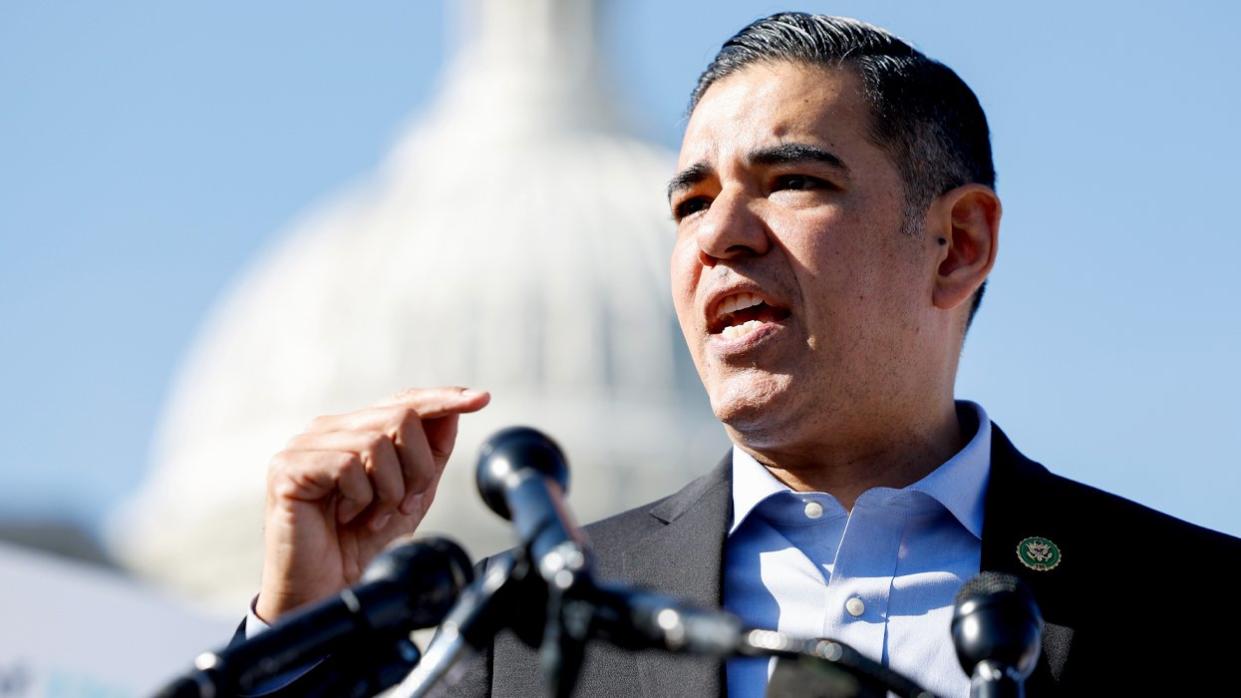Rep. Robert Garcia calls out Peru for classifying trans, intersex & nonbinary people as mentally ill

- Oops!Something went wrong.Please try again later.
Gay California U.S. Rep. Robert Garcia has condemned a decree by the Peruvian government that classifies transgender, nonbinary, and intersex individuals as “mentally ill.” The May 10 decree, signed by President Dina Boluarte, Health Minister César Vásquez, and Economic and Finance Minister José Arista, has drawn widespread criticism from human rights organizations and LGBTQ+ advocacy groups globally.
“As a gay Peruvian American and the first Peruvian American to serve in Congress, it’s clear to me the decision by the Boluarte administration and the right-wing Congress to attack and label trans and intersex Peruvians as ‘mentally ill’ is discriminatory, dangerous and shameful,” the Democrat said in a statement on Wednesday.
As the first Peruvian-American in Congress, I\u2019m angered about the Peruvian Government\u2019s decision to classify transgender and non-binary people as \u201cmentally ill.\u201d This is shameful and a direct attack on LGBTQ+ Peruvians. \n\nRead my full statement here: https://t.co/ghQv7EpejC 1/2
— (@)
“Instead of working on real problems – democratic backsliding, illegal mining and logging, and worker exploitation – this extreme measure moves Peru backward. I’ll be working directly with the State Department to push back on this direct attack on LGBTQ+ Peruvians,” he added.
Related: Superman, Batman, and Robert Garcia: A gay Democrat’s stand against his political villains
The decree references “ego-dystonic sexual orientation” and terms such as “transsexualism” and “gender identity disorder in childhood.”
Human Rights Watch noted these classifications are obsolete, having been replaced in 2019 by the World Health Organization’s updated International Classification of Diseases. Critics argue the decree perpetuates harmful stereotypes and could legitimize “conversion practices,” worsening mental health issues for LGBTQ+ communities in Peru.
“The Peruvian government should discard this biased and unscientific decree and aim to implement the WHO’s updated classification of diseases with respect to sexual orientation and gender identity,” wrote Cristian González Cabrera, a senior researcher with Human Rights Watch. “It should also consult with Peru’s LGBT organizations about how best to ensure their communities’ rights to physical and mental health through rights-respecting and proportionate public policies.”
Despite the Peruvian Health Ministry’s assertion that it does not view LGBTQ+ identities as illnesses, the decree remains in place, prompting intense backlash from Peruvian human rights organizations and activists.
The congressman said that his office would work with the U.S. State Department to coordinate a response and apply diplomatic pressure on the Peruvian government to reverse the policy.

